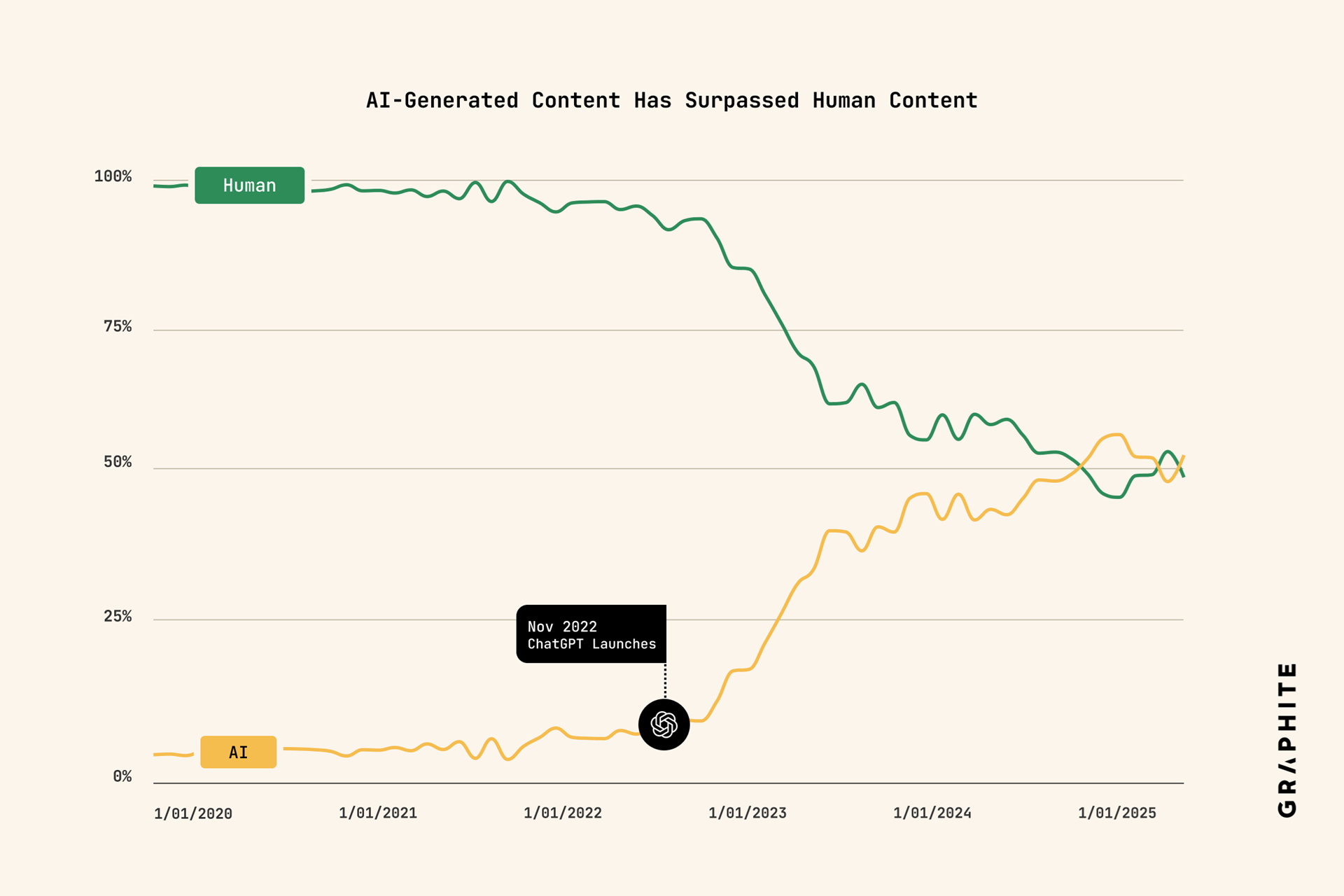- AI now writes the majority of newly published articles online, according to a study from Graphite
- Despite the volume, most AI-generated articles don’t appear in Google search results or ChatGPT answers
- AI-written content seems to have plateaued this year
More new articles online are written by artificial intelligence than by human beings, according to a new study from Graphite. Using Common Crawl data, Graphite found that AI-generated writing had passed the 50% mark of newly published web articles in November of last year. That figure has plateaued in recent months, but it's still a huge change in how content is produced.
The study relied on AI-detection tools applied to 65,000 English-language URLs from the Common Crawl archive, filtering for content with article markup and publication dates from 2020 to 2025. They classified each article as AI-generated or human-written based on whether over 50% of its content matched AI detection criteria. Not that the detector is perfect. The study's authors estimated false-positive and false-negative rates of about 4.2% and 0.6%, respectively.
The study may come as a surprise to a lot of people because quantity is not the same as visibility. The study also found that despite the volume of articles generated by AI flooding the web, most aren't good at SEO and don't show up often on Google or even in ChatGPT responses. Both tools still prioritize human-created content, so most AI-authored articles go unnoticed by everyday readers.
The rise in machine-written content largely tracks with the public release of ChatGPT in late 2022. In the span of twelve months, AI authorship of online articles went from basically nothing to close to 40%. Things have slowed down since then, possibly because of the underperformance of AI articles in search results.

Yet in terms of sheer volume, the robots are now outpacing their creators. The balance tilting toward AI represents how media companies, marketers, and clickbait content farms have sought ways to produce written content without the most expensive part, writers. The falling cost of high-performing AI tools only encouraged them. Every generation of model seems to offer faster speeds and lower prices than its predecessors.
Apparently blind to the source of any successfully performing writing, many have turned to AI models capable of churning out articles in seconds, with churn being the appropriate description for the bland slurry that usually results. The often dull, repetitive, and dully repetitive writing isn't going to nab eyeballs organically, and Google has openly deprioritized AI content in its search algorithm.
Internet AI flood
Still, they may be slowly starting to learn the futility of pursuing AI-only content creation. Graphite’s data shows that the percentage of new articles classified as AI-written has stayed flat since May. Publishers may be recalibrating how they use AI, and skipping full automation.
And while AI-detection tools are imperfect, they are improving. Platforms that publish low-quality AI content could find themselves penalized more aggressively by an audience that outright rejects what they produce.
The internet may now be a co-authored space between humans and machines. But it's the human writing that people actually want to read.
Follow TechRadar on Google News and add us as a preferred source to get our expert news, reviews, and opinion in your feeds. Make sure to click the Follow button!
And of course you can also follow TechRadar on TikTok for news, reviews, unboxings in video form, and get regular updates from us on WhatsApp too.








 English (US) ·
English (US) ·